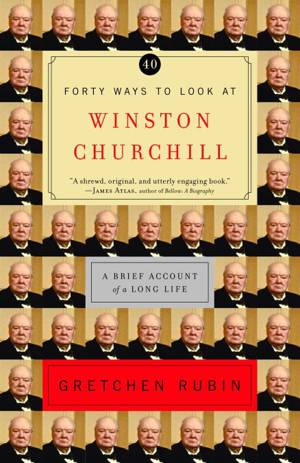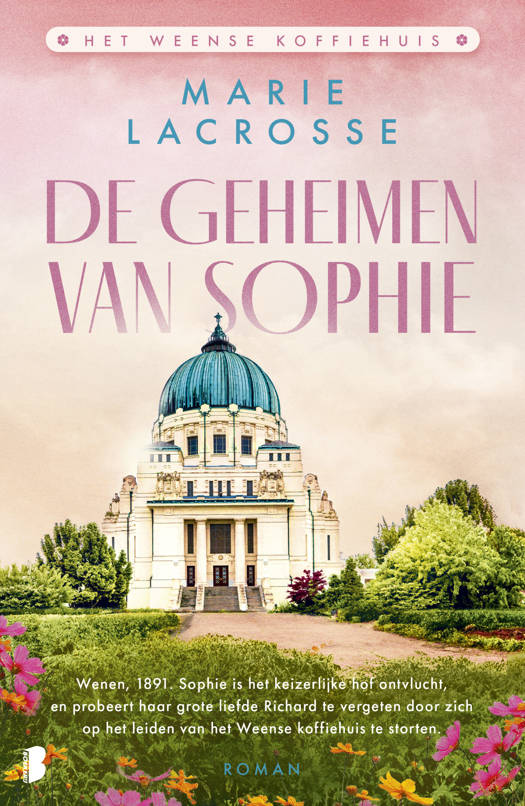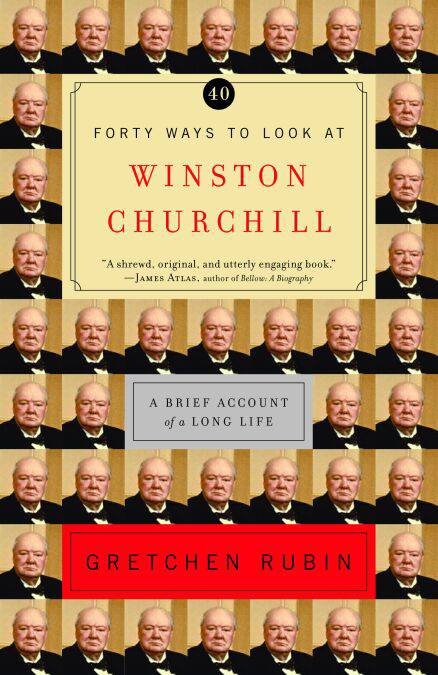
- Afhalen na 1 uur in een winkel met voorraad
- Gratis thuislevering in België vanaf € 30
- Ruim aanbod met 7 miljoen producten
- Afhalen na 1 uur in een winkel met voorraad
- Gratis thuislevering in België vanaf € 30
- Ruim aanbod met 7 miljoen producten
Forty Ways to Look at Winston Churchill E-BOOK
A Brief Account of a Long Life
Gretchen Rubin
E-book | Engels
€ 8,37
+ 8 punten
Uitvoering
Omschrijving
Warrior and writer, genius and crank, rider in the British cavalry’s last great charge and inventor of the tank—Winston Churchill led Britain to fight alone against Nazi Germany in the fateful year of 1940 and set the standard for leading a democracy at war.
Like no other portrait of its famous subject, Forty Ways to Look at Winston Churchill is a dazzling display of facts more improbable than fiction, and an investigation of the contradictions and complexities that haunt biography. Gretchen Craft Rubin gives readers, in a single volume, the kind of rounded view usually gained only by reading dozens of conventional biographies.
With penetrating insight and vivid anecdotes, Rubin makes Churchill accessible and meaningful to twenty-first-century readers with forty contrasting views of the man: he was an alcoholic, he was not; he was an anachronism, he was a visionary; he was a racist, he was a humanitarian; he was the most quotable man in the history of the English language, he was a bore.
In crisp, energetic language, Rubin creates a new form for presenting a great figure of history—and brings to full realization the depiction of a man too fabulous for any novelist to construct, too complicated for even the longest narrative to describe, and too valuable ever to be forgotten.
Like no other portrait of its famous subject, Forty Ways to Look at Winston Churchill is a dazzling display of facts more improbable than fiction, and an investigation of the contradictions and complexities that haunt biography. Gretchen Craft Rubin gives readers, in a single volume, the kind of rounded view usually gained only by reading dozens of conventional biographies.
With penetrating insight and vivid anecdotes, Rubin makes Churchill accessible and meaningful to twenty-first-century readers with forty contrasting views of the man: he was an alcoholic, he was not; he was an anachronism, he was a visionary; he was a racist, he was a humanitarian; he was the most quotable man in the history of the English language, he was a bore.
In crisp, energetic language, Rubin creates a new form for presenting a great figure of history—and brings to full realization the depiction of a man too fabulous for any novelist to construct, too complicated for even the longest narrative to describe, and too valuable ever to be forgotten.
Specificaties
Betrokkenen
- Auteur(s):
- Uitgeverij:
Inhoud
- Aantal bladzijden:
- 336
- Taal:
- Engels
Eigenschappen
- Productcode (EAN):
- 9781588363848
- Verschijningsdatum:
- 10/05/2004
- Uitvoering:
- E-book
- Beveiligd met:
- Adobe DRM
- Formaat:
- ePub

Alleen bij Standaard Boekhandel
+ 8 punten op je klantenkaart van Standaard Boekhandel
Beoordelingen
We publiceren alleen reviews die voldoen aan de voorwaarden voor reviews. Bekijk onze voorwaarden voor reviews.










